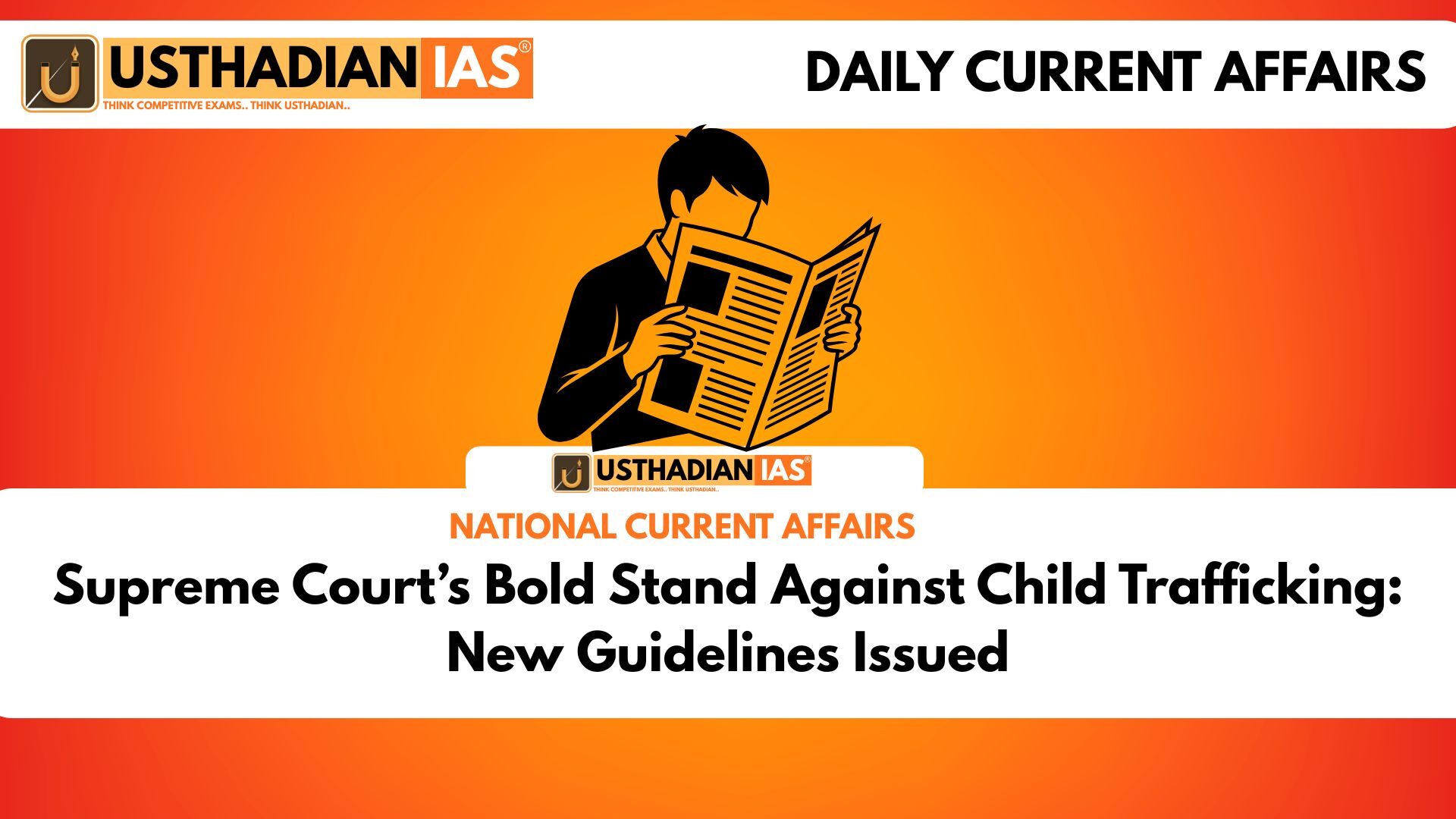A Wake-Up Call from the Supreme Court
On April 15, 2025, the Supreme Court of India delivered a powerful judgment that cut through the silence surrounding child trafficking. This was not just a routine ruling—it was a wake-up call to parents, hospitals, law enforcement, and courts alike. As trafficking networks become more tech-savvy and dangerous, the court made it clear: a moment of carelessness can change a child’s life forever.
Crimes That Steal Childhood
Supreme Court’s Bold Stand Against Child Trafficking: New Guidelines Issued: The court outlined how children are trafficked for sexual exploitation, forced labour, begging, illegal adoption, and even child marriage. What’s worse, gangs are now using digital tools—like encrypted chats and online payment apps—to coordinate their crimes across states. It’s chilling to think of these well-organised syndicates treating children like commodities, while families are left with trauma and no closure.
In its emotionally charged judgment, the court said losing a child to trafficking is worse than death, because at least death has closure. The anguish of not knowing where a child is can haunt families forever.
Hospitals Can’t Ignore Their Role
In a landmark move, the court held hospitals accountable if newborns go missing. It stated that hospitals may face license suspension or legal action if they fail to prevent trafficking from within their premises. This sends a strong message—security isn’t optional, especially in maternity wards.
Adoption Loopholes and Juvenile Justice Misuse
The court also addressed how long wait times for legal adoptions are pushing desperate families into the hands of traffickers. The result: an underground network of illegal inter-country adoptions, often disguised as genuine.
Meanwhile, gangs are misusing the Juvenile Justice Act by recruiting children for crimes, knowing they’ll get lighter sentences. The law meant to protect children is now being twisted into a shield for criminals.
Swift Action Ordered
The Supreme Court didn’t stop at words—it took action. It cancelled bail for 13 accused who had been let off by the Allahabad High Court and ordered their trial to be completed within six months. The police were directed to trace absconding suspects in two months.
Additionally, three Special Public Prosecutors were appointed, and the court ordered protection for victim families, showing real concern for justice and safety.
Accountability at All Levels
The Uttar Pradesh government came under direct fire for failing to act quickly in appealing the High Court’s decision. The judgment is now binding across India, and any official who delays or disobeys the court’s directives could face contempt of court charges.
This ruling shows that the justice system is not turning a blind eye anymore—and it expects the same from all other institutions involved in child protection.
STATIC GK SNAPSHOT
Supreme Court’s Bold Stand Against Child Trafficking: New Guidelines Issued:
| Topic | Details |
| Judgment Date | April 15, 2025 |
| Supreme Court Bench | Justices J.B. Pardiwala & R. Mahadevan |
| Key Crimes Involved | Sexual exploitation, child labour, begging, adoption fraud |
| Tech Role in Crime | Sharing victim photos, locations, and money via digital tools |
| Hospitals’ Liability | License may be suspended for missing newborns |
| Adoption Loopholes | Illegal adoption due to long wait periods |
| Juvenile Justice Exploitation | Children used for crime due to lenient juvenile laws |
| Bail Action | Bail cancelled for 13 accused |
| Trial Completion Deadline | 6 months |
| Police Action Deadline | 2 months to trace absconders |








